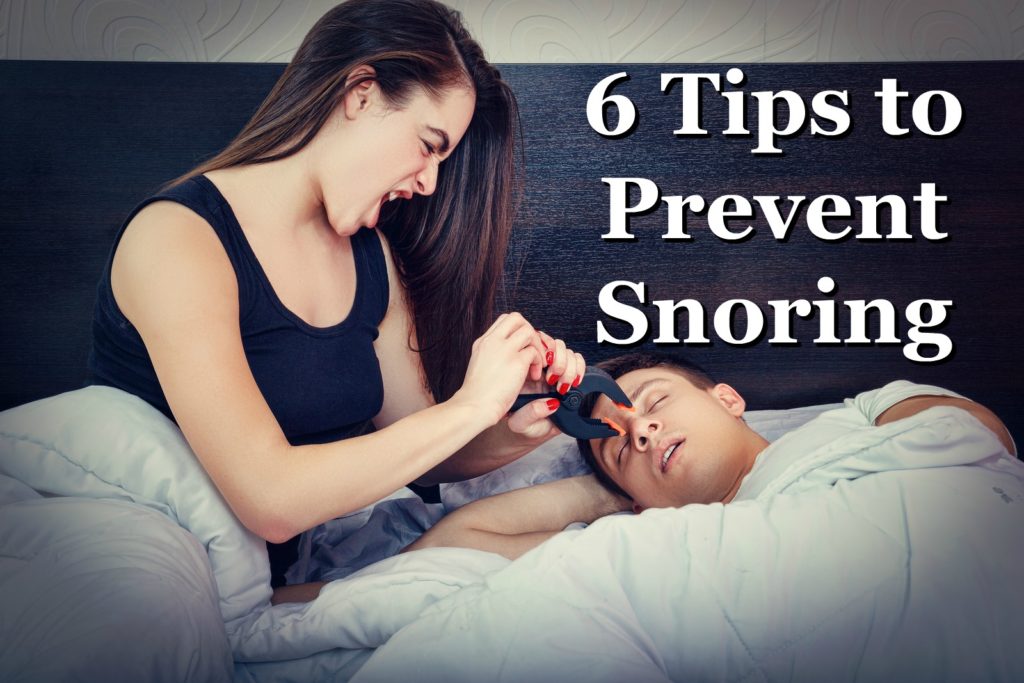People snore when they can’t move air freely through their nose and throat during sleep. When the air can’t move freely it makes the surrounding tissues vibrate, which produces the sound we all know too well. People who snore nightly may have too much or “floppy” nasal and/or throat tissue, which is more prone to vibrate. Sometimes the position of one’s tongue will get in the way of smooth breathing and cause people to snore as well. Environmental factors like allergens can also be a factor.

Though snoring will rarely bother the snorer, those that sleep close to them will find it downright annoying. Before your partner moves out of the room, let’s explore some options to help prevent the snoring from happening in the first place.
- Make a lifestyle change
Drinking alcohol, smoking, and taking muscle relaxants or sedative medications can worsen snoring. Try abstaining for a few days and see if you notice a difference. Start slowly by first eliminating that glass of wine or beer in the evening and see if you notice an improvement. Never stop taking medications prescribed by your doctor without consulting with them first.
- Change your sleeping position
Back sleepers are most prone to snoring. Try a sleep positioning device designed to help keep you off your back. Or try a specially designed pillow that prevents snoring by making sure your neck muscles are not crimped. Elevating your head about four inches helps to clear the airway and ease breathing and encourages your tongue and jaw to move forward.
- Keep the air in your bedroom moist
Dry air can irritate the membranes in your nose and throat causing them to swell. This may be causing your snoring. Use a humidifier in your bedroom while you sleep to keep the air moist.
- Ask your dentist or ENT specialist about an anti-snoring mouth appliance
These often resemble a mouth guard used by athletes. They bring your lower jaw and/or your tongue forward while you sleep, helping to open your airway and preventing snoring.
- Lose weight
Extra weight can narrow your airway, making your nighttime breathing more likely to be noisy.
- Clear out your nasal passages
If you have a stuffed-up nose, rinse out your sinuses with saline before you go to bed. Neti pots are great for clearing the sinuses. You could also try several other over-the-counter nasal decongestants or even nasal strips to help you breathe more easily while you sleep at night. If you suffer from allergies, keep pets out of your bed, dust and clean your room and fans regularly, and if needed, use an allergy medication at night.
Snoring could indicate obstructive sleep apnea, a potentially life-threatening condition that requires medical attention. Normal snoring won’t interfere with the quality of your sleep as much as sleep apnea, so if you’re suffering from extreme sleepiness during the day, your problem may be more than just snoring. Schedule an appointment with one of our sleep experts to help get your sleep back on track.

